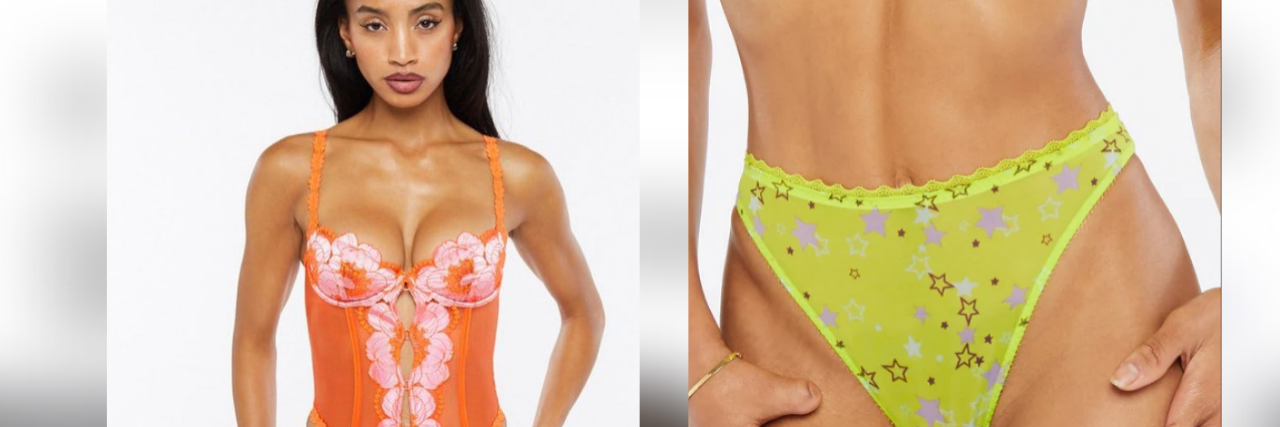How Fashion Brands Like Savage x Fenty Can Avoid Tokenism When Including Disabled Models
Rihanna is known for including models of all genders, skin tones and body types in ad campaigns for her Fenty brand and has even hired models with disabilities for the Savage x Fenty fashion show Now she’s hired a model with limb differences whose photos have been widely circulating in the media.
Fenty model Lyric Mariah Heard has amniotic band syndrome, which occurs when the bands that protect fetuses as they develop wrap around the limbs. Heard has only three fully developed fingers and wears a prosthetic leg, and her hands are on full display in the latest Fenty promotional photos, in which she poses confidently, hand-on-hip.
Heard’s appearance as a Fenty lingerie model is a representation win, not just for those living with amniotic band syndrome but also for anyone with conditions affecting their hands. Seeing Lyric confidently strike a pose with her limb differences in clear view could help people with disabilities like arthrogryposis or cerebral palsy who may feel self-conscious about their hands finally see themselves as beautiful and worthy of media representation.
But while Heard can certainly resonate with people with disabilities, her solo presence in the photos (and the media buzz surrounding Rihanna’s decision to hire her specifically) could ultimately tokenize her disability. Her rising popularity as “Fenty’s limb-different model” comes at a potentially dangerous cost — being seen almost exclusively as a model with limb differences instead of just another model.
Although there are times when emphasizing disability is extremely important, people with disabilities who face tokenism may struggle to balance their disability identities with the other ways they identify. Disability tokenism also wrongly suggests that disability is one-dimensional and that people who are publicly disabled or advocate for the disability community only care about disability issues when the reality is that there’s so much more to a disabled life than disability. If Heard ever opts to downplay her disability identity or bring other identities to the forefront, it could be especially difficult to do because her reputation as a model with a disability now precedes her.
Fenty’s decision to hire Heard for their latest campaign makes the model — and her disability — stand out, but in order to normalize disability in the modeling world, they need to continue hiring disabled models and including them naturally alongside able-bodied ones. Hiring disabled models for a campaign is an excellent gateway to better disability representation, but to consumers who rely on buzzy headlines instead of fully researching the brand’s history, it may appear to be a decision to include a “bare minimum” level of ability diversity. While Heard’s presence in this campaign is necessary and a vast improvement over similar ads that don’t feature disabled or limb different models, it’s just one necessary step towards a much larger overall goal — to include models of all abilities in photoshoots and advertisements as often and seamlessly as possible.
Lyric Mariah Heard’s inclusion in promotional materials for Rihanna’s Fenty line is groundbreaking for people with limb differences and disabilities affecting their hands, but it shouldn’t be regarded as an “end point” for disability representation. People who’ve felt self-conscious about their hands and legs are finally seeing them normalized in the media, but the buzz surrounding just one of Fenty’s disabled models could tokenize her. Fenty remains a step ahead of many other brands in terms of disability inclusion, and they should continue on that trajectory — the modeling world doesn’t typically prioritize disabled models, and the disability community deserves more.

